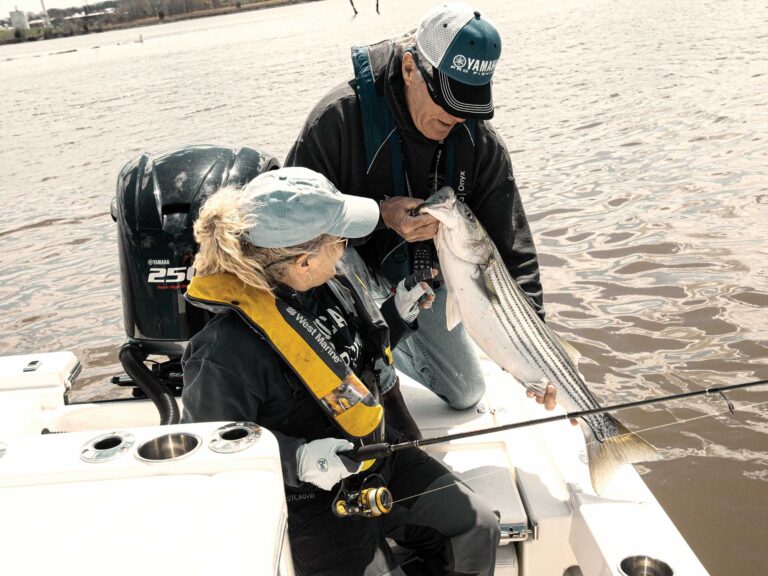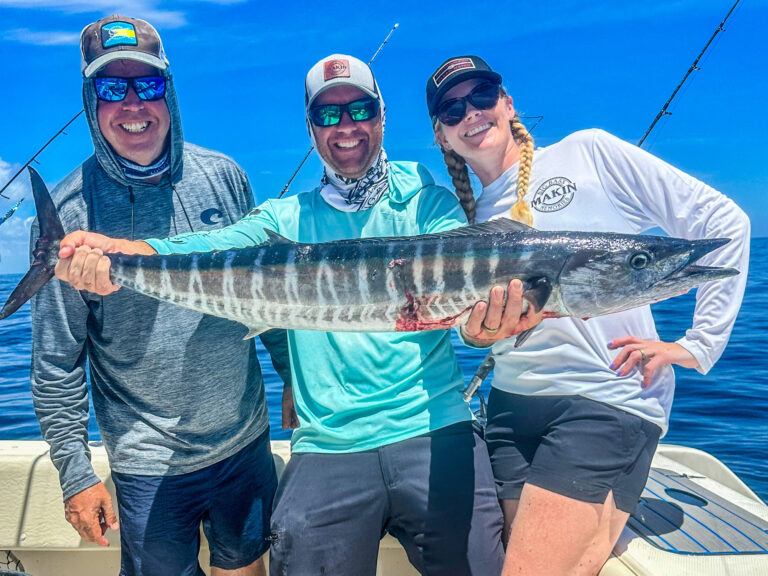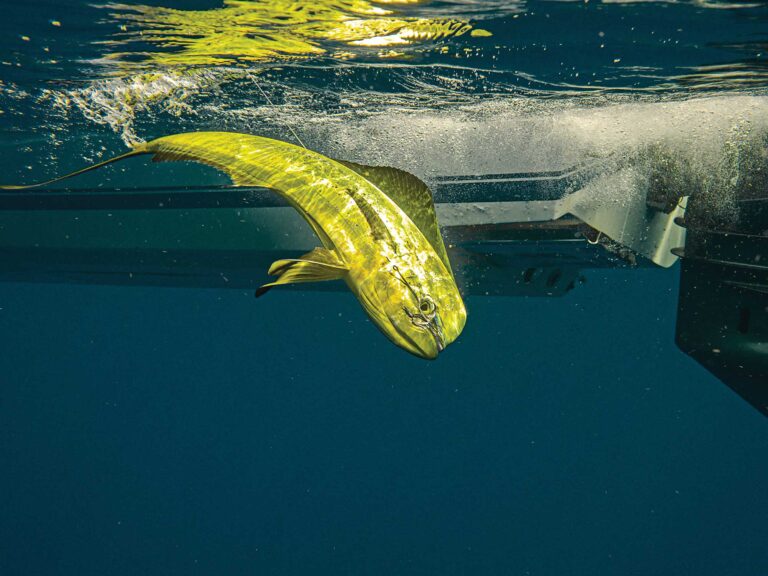The FishAmerica Foundation and the National Oceanic and Atmospheric Administration’s (NOAA) Restoration Center awarded 22 grants totaling more than $785,000 for fisheries habitat restoration projects located in communities in twelve states. The projects range from improving fish passage in the Betsie River (Michigan) watershed of Lake Michigan to recreating oyster reef fisheries habitat in San Francisco Bay to restoring hurricane-damaged fish habitat in Florida. This is the first year the partnership will fund projects in the Great Lakes watershed.
Since 1998, FishAmerica has partnered with the NOAA Restoration Center to restore critical marine and anadromous sportfish habitat along the coastal United States. To date, the partnership has funded more than 185 projects valued at more than $2.8 million.
“These valuable projects will improve fishing for the nation’s 37 million coastal and Great Lakes anglers,” said Johanna Laderman, FishAmerica managing director. “FishAmerica is excited to work so closely with fisheries managers and our partners in the sportfishing and boating industry for the future of recreational fisheries in the United States.”
The grants were awarded to local watershed associations, conservation clubs, and local and state agencies. Over the course of the projects, it is estimated that more than 1,400 volunteers will donate 15,000 hours to restore sport fish spawning and rearing habitat, improve water quality and improve fish passage for salmon, trout, striped bass, bluefish, snook, tarpon, redfish, black drum, sheepshead, flounder and other sport fish.
The twelve states receiving funding are: Alaska, California, Florida, Massachusetts, Michigan, New Jersey, New York, North Carolina, Oregon, Pennsylvania, Rhode Island and Washington state.
The FishAmerica Foundation provides nearly $1 million in grants each year for fisheries conservation and research across the country, empowering citizen conservationists in their own communities. Over the last 20 years, the foundation has provided more than $8 million for over 800 grassroots conservation projects.
“NOAA Fisheries Service is really excited about this partnership and the conservation efforts that will result from these grants,” said Dr. Bill Hogarth, NOAA Fisheries Service director. “Our living marine resources need good healthy habitat to be able to sustain their populations, and we believe this partnership and the grants we are providing will help restore some of these critically important habitats.”
In the United States, saltwater recreational fishing is a $31 million industry while fishing in the Great Lakes adds an additional $7.3 million to the economy. Overall, American anglers spend $41.5 billion in retail sales and generate $116 million in economic benefits for the nation each year.
**2005 FishAmerica and NOAA Restoration Center Projects
**Alaska:
The Alaskan Youth Restoration Corps of Kenai was awarded $25,000 to restore instream spawning and rearing habitat for Coho, chum, pink and Chinook salmon along Resurrection Creek in the Cook Inlet watershed on the Kenai Peninsula. Resurrection Creek was home to Alaska’s first gold rush nearly a century ago.
California:
The Forestville Planning Association was awarded $30,000 to restore coho and steelhead rearing habitat along the Green Valley Creek in the Russian River watershed. The Marin Rod and Gun Club received $49,712 to restore oyster reef fisheries habitat in San Francisco Bay near Point San Quentin. The Mattole Restoration Council was awarded $45,000 to improve salmonid access to nearly three miles of high quality salmon spawning and rearing habitat on the South Fork of Bear Creek in Humboldt County. The Tuolumne River Preservation Trust received $40,000 to restore fisheries habitat in the Tuolumne River watershed in Modesto.
Florida:
The Federation of Fly Fishers was awarded $35,775 to restore fisheries habitat within the Ding Darling National Wildlife Refuge damaged during the 2004 hurricane season. The Florida Department of Environmental Protection was awarded $15,000 to create highly productive oyster reef fisheries habitat in the Pensacola and Choctawhatchee Bays in northwest Florida. The Florida Gulf Coast University was awarded $35,000 to restore oyster reef fisheries habitat in the western Everglades estuaries of southwestern Florida.
Massachusetts:
The Town of Plymouth was awarded $50,000 to improve fish passage along Town Brook a popular sportfishing destinations for recreational fishermen targeting striped bass and bluefish.
Michigan:
The Conservation Resource Alliance was awarded $20,000 to improve fish passage along Dair Creek in the Betsie River watershed of Lake Michigan, a popular fishing spot for local anglers.
New Jersey:
The New Jersey Division of Fish and Wildlife was awarded $22,362 to restore oyster reef and fisheries habitat in the Mullica River and Great Bay estuary in New Jersey.
New York:
The Chautauqua County Soil and Water Conservation District was awarded $50,000 to stabilize and restore the streambanks of Chautauqua Creek, a major tributary of Lake Erie. A prime trout stream, the creek’s lower five miles provides spawning and rearing habitat for coho, Chinook, steelhead, and brown trout.
North Carolina:
The North Carolina Coastal Federation was awarded $40,000 to restore salt marsh and tidal creek fisheries habitat and reduce non-point source pollution and sediment input in the North River watershed.
Oregon:
The Columbia Slough Watershed Council was awarded $45,000 to restore fish passage to critical floodplain fisheries habitat in the Lower Columbia Slough in Oregon. The Columbia Soil and Water Conservation District was awarded $45,000 to restore fish access to six miles of upstream habitat along Miller Creek, a tributary of the Clatskanie River in the Lower Columbia River watershed. The Confederated Tribes of the Umatilla Indian Reservation received $25,000 to restore instream fisheries habitat and stabilize streambanks along McKay Creek in the Umatilla River watershed, in Pendleton, Oregon.
Pennsylvania:
The Pennypack Ecological Restoration Trust was awarded $42,800 to remove the Bethayres Dam along Pennypack Creek in the Delaware River watershed, initiating the restoration of fish passage to nearly thirty miles of valuable spawning and rearing habitat for many species of anadromous fish.
Rhode Island:
The Rhode Island Department of Environmental Management was awarded $45,000 to restore passage to upstream spawning and rearing habitat.
Washington:
Fish First was awarded $49,100 to restore fish passage to upstream spawning and rearing habitat along Stavle Creek, in the North Fork Lewis River watershed. Fish First was founded by Gary Loomis of G.Loomis to restore fish runs and recreational fishing in the Lewis River watershed and to promote the economic viability of local communities and businesses in the watershed while balancing watershed health. The Mid-Puget Sound Fisheries Enhancement Group received $21,000 to restore fish passage, enhance instream rearing habitat and improve water quality in an unnamed tributary of Newaukum Creek in the Puget Sound watershed. The Northwest Watershed Institute was awarded $25,000 to remove a fish barrier along Tarboo Creek. Fish barriers are a major limiting factor for migrating salmon populations. The Washington Department of Natural Resources was awarded $29,640 to restore nearshore fisheries habitat along Henderson Inlet in the Puget Sound watershed.
The FishAmerica Foundation is the conservation and research foundation of the American Sportfishing Association. FishAmerica unites the sportfishing industry with conservation groups, government agencies, fishing tournaments, corporations and charitable foundations, investing in fisheries conservation and research across the country. FishAmerica provides matching grants that empower citizen conservationists in their own communities. Since 1983, FishAmerica has provided more than $8 million for more than 800 fisheries conservation and research projects nationwide.









